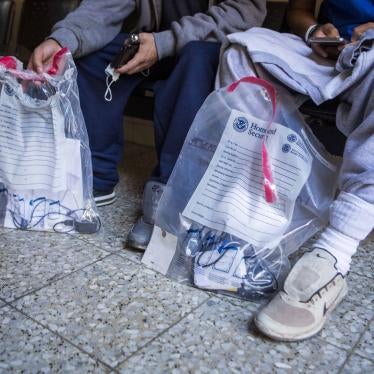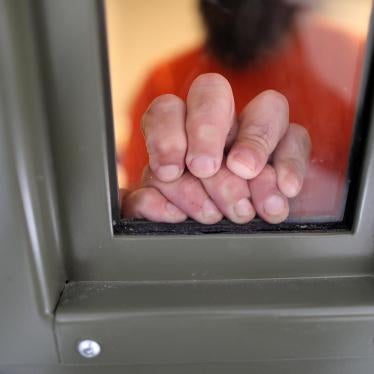Donald Trump's administration proposed a cold-blooded new, 161-page asylum regulation last week.
It would limit those eligible to qualify for asylum in the United States and circumvent America's legal obligations - under US and international law - to provide refuge at the southern border to those fleeing persecution.
The new rule still needs to undergo a public comment period and will not take effect immediately. But it builds upon previous and ongoing Trump administration efforts to block asylum seekers from reaching ports of entry, hold them in Border Patrol custody without access to counsel, send them to wait in danger in Mexico while their cases are pending, and, since the advent of Covid-19, expel them without hearings.
President Trump has negotiated a series of "Asylum Cooperative Agreements" with Honduras, El Salvador and Guatemala that deflect asylum seekers to these poorer countries that themselves produce refugees and have little to no ability to protect people fleeing the region to save their lives.
In mid-March, the US suspended transfers to Guatemala in response to the pandemic. The agreements with Honduras and El Salvador, however, are waiting to be implemented. There is still a chance to end these agreements before they place more asylum seekers in grave danger.
Our organizations investigated the Trump administration's Guatemala deal, including interviewing 40 people transferred there before the pandemic pause. We found that the US government has shunted to Guatemala hundreds of non-Guatemalans, predominantly women with young children, who may have well-founded fears of persecution.
In Guatemala, hundreds of transferees faced uncertainty and grave risk and as a result many were effectively compelled to abandon their asylum claims and return to the places they had fled in fear.
Asylum seekers at the southern border were denied the most basic procedural safeguards, including the opportunity to present evidence or acquire a lawyer. Many had endured demeaning and coercive treatment by Border Patrol.
One Salvadoran woman told us that she was coerced into signing her "voluntary deportation" form at 2 a.m., believing it to be an asylum application. Soon afterward, officials chained her around her waist, ankles and wrists and sent her to Guatemala. "To them we are like bugs," she said.
A Honduran teenager who was kidnapped and tortured by a gang and set up to look like an informant, said "It is worse here (in Guatemala)... because (the same gangs) require you to kill people, and if you don't do it, they will kill my mother or kill my family."
Asylum seekers told us they had 72 hours to seek asylum in Guatemala, apply for another type of residence there, or go home. They were provided little information about Guatemala's nascent and unwieldy asylum system. Even if the transferees had not been afraid to wait in Guatemala, they would have immense difficulty supporting themselves and their children there.
A Honduran woman traveling with her baby said she found no support or place to stay in Guatemala and had to return to Honduras despite the threat from the violent gang that had forced her husband to flee to the US.
No government is monitoring what happens to asylum seekers transferred to Guatemala.
Looking away does not absolve the US government of its state responsibility to protect asylum seekers, even in times of national emergency.
The US Immigration and Nationality Act and international law permit asylum seekers to be sent to a third country that is "safe" and provides access to full and fair asylum procedures. These Trump administration agreements, however, pervert this concept of a "safe third country" and disregard international protection and cooperation altogether.
Pressuring Central America to enter harmful agreements when the region has very limited capacity to provide asylum risks normalizing this blatantly unlawful approach.
The administration's approach of block, hold or expel is a system of removal that betrays the promise of the US asylum system by denying asylum seekers an opportunity to seek protection. And the new proposed regulation continues the Asylum Cooperative Agreement 's gutting of the credible-fear interview process and perversion of the safe-third-country concept.
What is urgently required is a US approach that affords people in neighboring countries their full measure of rights to asylum and addresses the regional factors creating the threat of violence.
Leaders of the countries party to these unlawful agreements, including the US as the principal instigator, should terminate the agreements before transfers to Guatemala resume and the agreements in Honduras and El Salvador begin.
Congress should invest in the asylum system to strengthen legal and procedural safeguards and to stop unlawfully returning people to places where their life or freedom is endangered.






